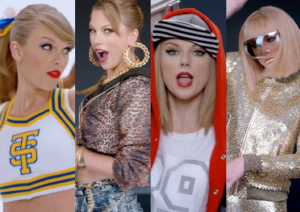Nowadays, Willie Nelson is the bearded, braided, grand old man of country music. He’s not only a musician and composer but also an activist and philanthropist beloved by country music fans, farmers (he established the Farm Aid movement with Neil Young and John Mellencamp in 1985), hipsters, even hip-hop artists. When he sang a pot-themed Christmas carol with Stephen Colbert on Colbert’s delightful “A Colbert Christmas” special a few years back, he was the highlight of a highly lit show. So it’s fun to see a clean-cut, clean-shaven Willie in this film clip from 1962 in which he dons a sharp suit and uses his smooth DJ voice between songs.
Willie spent several years as an actual DJ in the 1950s, first in Texas and later in the Pacific Northwest. After getting his start on the radio in Texas, he moved west to broadcast his resonant announcer’s voice from a radio station in Vancouver, Washington, just across the state line from Portland, Oregon. There he bought his first house, had his second child and wrote several songs that became big hits for other country artists. In Texas and in Washington, Willie was famous for opening his show with his signature line: “This is your ol’ cotton pickin’, snuff dippin’, tobacco chewin’, coffee pot dodgin’, dumplin’ eatin’, frog giggin’ hillbilly from Hill County!” (I’m so glad he moved beyond frog gigging.)
Once Willie started having real success in selling his songs, he moved back to Texas to resume his DJ duties while looking for recording opportunities of his own. He DJ’ed on Texas radio stations while teaching guitar classes and writing songs on the side. He moved to Nashville in 1960 hoping to get a recording contract of his own, but all his demos were rejected. He finally got his first contract in 1961 and released his first album, …And Then I Wrote, in 1962.
Well before Willie was a household name, he was writing hit songs for other country artists. His best-known composition, “Crazy,” became Patsy Cline’s biggest hit and is the most frequently played juke box song of all time. He was paid just $50 for the rights to it, but, happily, he said in one of his very enjoyable interviews with Terry Gross on her Fresh Air National Public Radio show that he did receive royalties on it later. (For more on the story behind the song, check out this piece by NPR’s Linda Wertheimer was featured on All Things Considered in 2000.)
Though Willie is a country legend, listen closely to his phrasing and you’ll recognize the huge influence that jazz has had on his performing style. Willie is always singing and swinging just a little off the beat to add interest to every measure. Despite his strong twang and the trademark nasal quality of his voice when he sings in his upper register, a warm mellowness takes over in his lower tones. There is a spare quality to his singing and beautiful guitar playing that reminds one jazz musicianship; his takes on pop standards like “Stardust” often have a dreamy quality.
Willie has recorded with many artists, and his distinctive voice blends well with all sorts of pop, rock, folk, jazz and country voices, smooth and rough, high and low. Willie has taken on a sort of everyman persona over the years, but behind the easygoing, scraggly looking fellow in jeans and bandannas is a major philanthropist, humanitarian and advocate for animal welfare; a sophisticated musical storyteller; a legendary composer; a gifted and subtle guitarist; and, at times, a mellow crooner with a voice and a vision like no one else’s.

